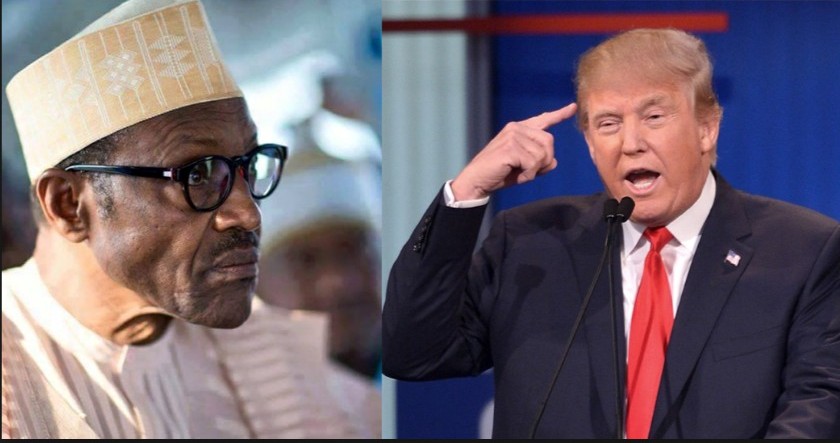Nigeria will not accept the stringent conditions given by the United States on the planned purchase of 12 Tucano fighter jets, Minister of Defence Mansur Dan-Ali has said.

The minister said the security council has approved the purchase of the $494 million 12 A-29 Super Tucano fighter crafts, but “some of the conditions America gave us are stringent. These conditions we will not accept.”
One of the conditions is that the sale will not be made till 2020, the minister said. He said other conditions included that Nigerian technicians would not be trained by US staff, or be part of the maintenance crews.
“They are also thinking of not allowing our technicians to be part of the production inspection,” he said.
“But this is what we normally do in all the defence contracts, we send our personnel to go and understudy, especially when it comes to specialized aircrafts like in Russia, our personnel are permanently based in where the production is being done for this MI35 helicopters,” Dan-Ali told reporters at the State House, Abuja.
The aircraft purchase has been mired in controversy since President Barack Obama’s administration. Under Obama, the aircraft deal had been held off due to concerns about the Nigerian military’s human rights abuses.
The deal was further postponed recently when 170 people died last January after Nigerian Airforce bombed a refugee camp in Rann, Borno state.
Dan-Ali said the federal government was planning to meet with the US ambassador to discuss reducing the conditions.
“Payments will be made when the conditions are reduced,” the defence minister said.
The Nigerian Airforce had earlier scheduled February 20 for the final agreements to be signed and initial payments made.
Concern over cost of planes
Daily Trust has been on the story for weeks over the huge cost of the Tucano planes since the deal was announced.
The Minister of Information Lai Mohammed earlier said in a statement that the 12 aircraft, with weapons and services, would cost $593 million. But the defence minister yesterday gave the cost at $494m, about $100m less the cost announced by the government spokesperson.
A cost analysis by this newspaper has shown that the government-declared cost is almost three times the cost of the planes in the international market.
Findings revealed that a Super Tucano costs more than $10 million each and the price can go up to $15 million apiece depending on the configuration.
Going by Dan-Ali’s cost, Nigeria is purchasing each of the plane at about $41 million.
The propeller-driven plane with reconnaissance, surveillance and attack capabilities, is made by Brazil’s Embraer. A second production line is in Florida, in a partnership between Embraer and privately held Sierra Nevada Corp of Sparks, Nevada.
More than 200 Super Tucanos are operated by 10 nations, according to Embraer. The plane is used for training and security, surveillance, reconnaissance and counter-insurgency missions.
The plane can carry a wide array of armaments, including precision-guided munitions, is equipped with advanced avionics, communications, and sensors and can operate from remote, unpaved airstrips.
It has a maximum speed of 590 km per hour (367 mph) and a flight ceiling of 35,000 feet (6.6 miles).
Experts smell underhand deal
Security experts and defence contractors spoke to our reporters.
Speaking on condition of anonymity, a retired senior air force officer conversant with the deal said the high cost was arrived “most likely through intermediaries in which case 95 percent of the deal is backed by corrupt practices which makes it so expensive.”
He said, “everybody involved wants to make extra cash, the manufacturer, the intermediate and the end user.”
The security chief fingered some senior government officials in the deal. He said a senior security official had “wanted to stop the deal but due to the non-assertiveness of that security official, another official went ahead with the deal.”
“I think what the NAF signed with the Defence Attache of US was the approval of the US Government to supply the toys. I called them toys because they are basically training aircrafts and not effective in combat missions,” he said.
Another defence contractor also said the high cost might be the handiwork of intermediaries. He said the cost of the planes is determined by the source of procurement, mode of payments, among others.
“US and EU companies won’t accept any price above their reasonable profit margin. This is because of the stringent oversight by their home government agencies who audit their books,” he said.
But in the case of Nigeria’s purchase, “the high cost must have been borne out by the actions of intermediaries. The money might be paid through offshore accounts in some islands.
But the EU and US companies are very careful in accepting anything above their ideal profit margin,” the defence contractor said.
No full cost of jets yet – Airforce
For over two weeks, Daily Trust sought explanations on the list of the added components that forced the cost to be so high.
The information ministry, when contacted, referred our reporter to defence ministry for details of the deal. But the spokesperson of defence minister Colonel Tukur Gusau yesterday said he didn’t have the details of the deal.
“I need time to consult the relevant stakeholders to obtain the details,” Gusau told our reporter by telephone last night.
The spokesperson of the US embassy in Abuja Mr Russell Brooks was also not available for comment yesterday.
But the spokesperson of the Nigerian Air Force Air Vice Marshal Olatokunbo Adesanya said he would reveal details of the full cost at the right time.
He said apart from just the purchase of the aircraft, details of the transaction would include spares for the jets, training of pilots, training of maintenance crew and ammunition.
He said there would need to put an adequate infrastructure in place for the maintenance of the fighter jets.







